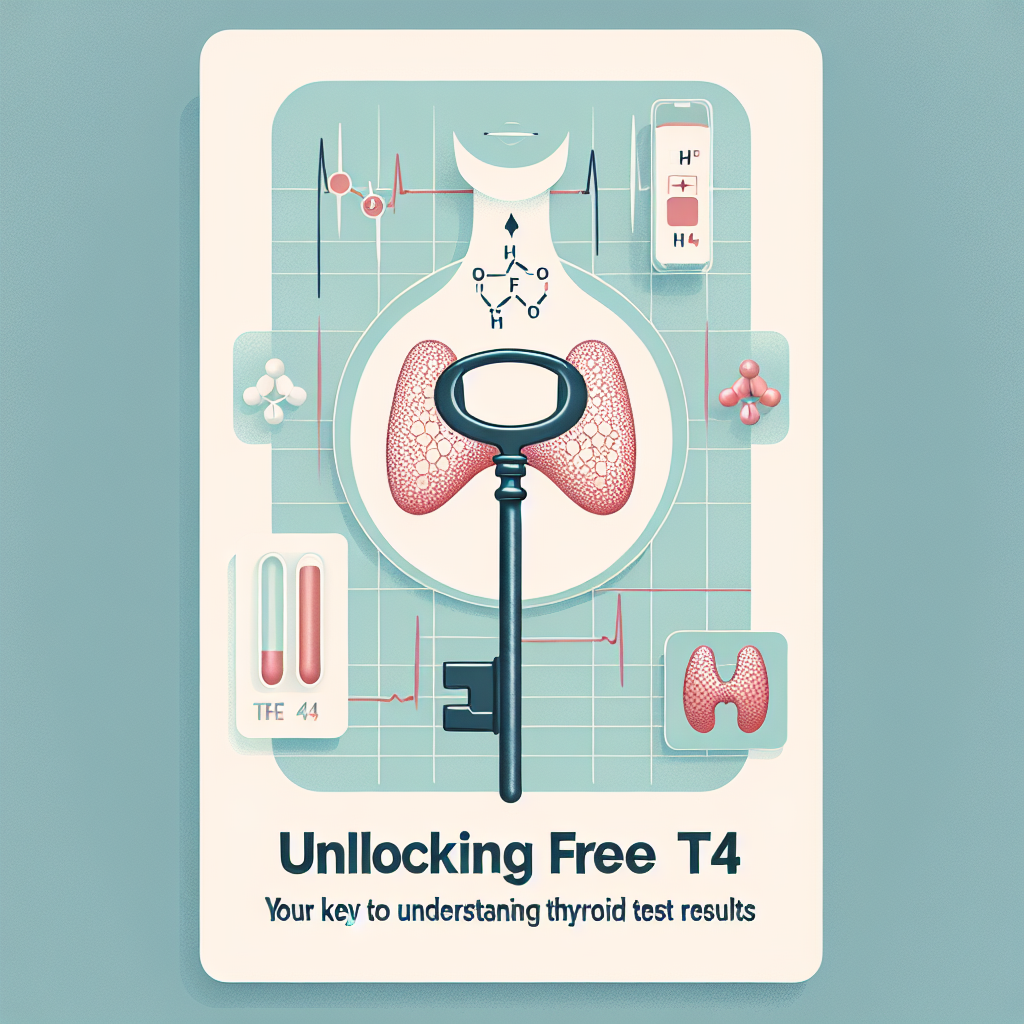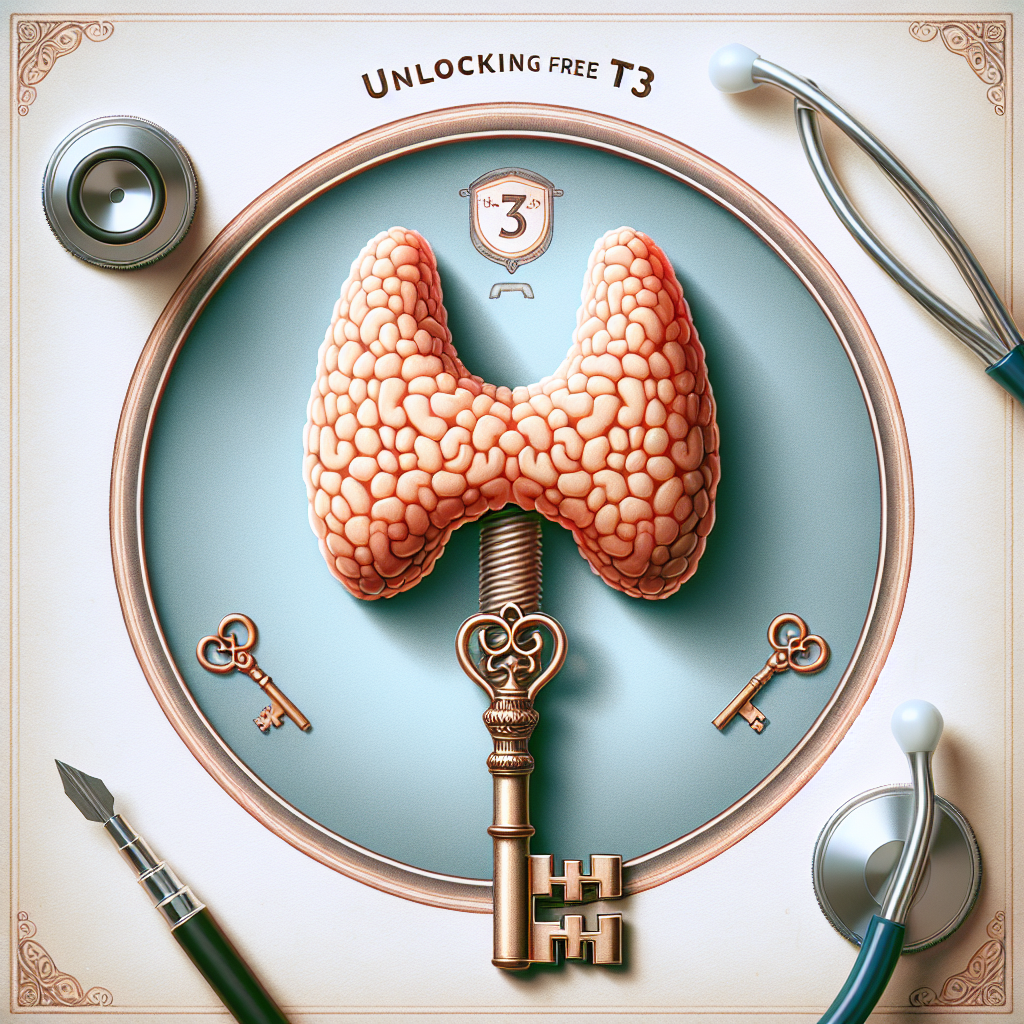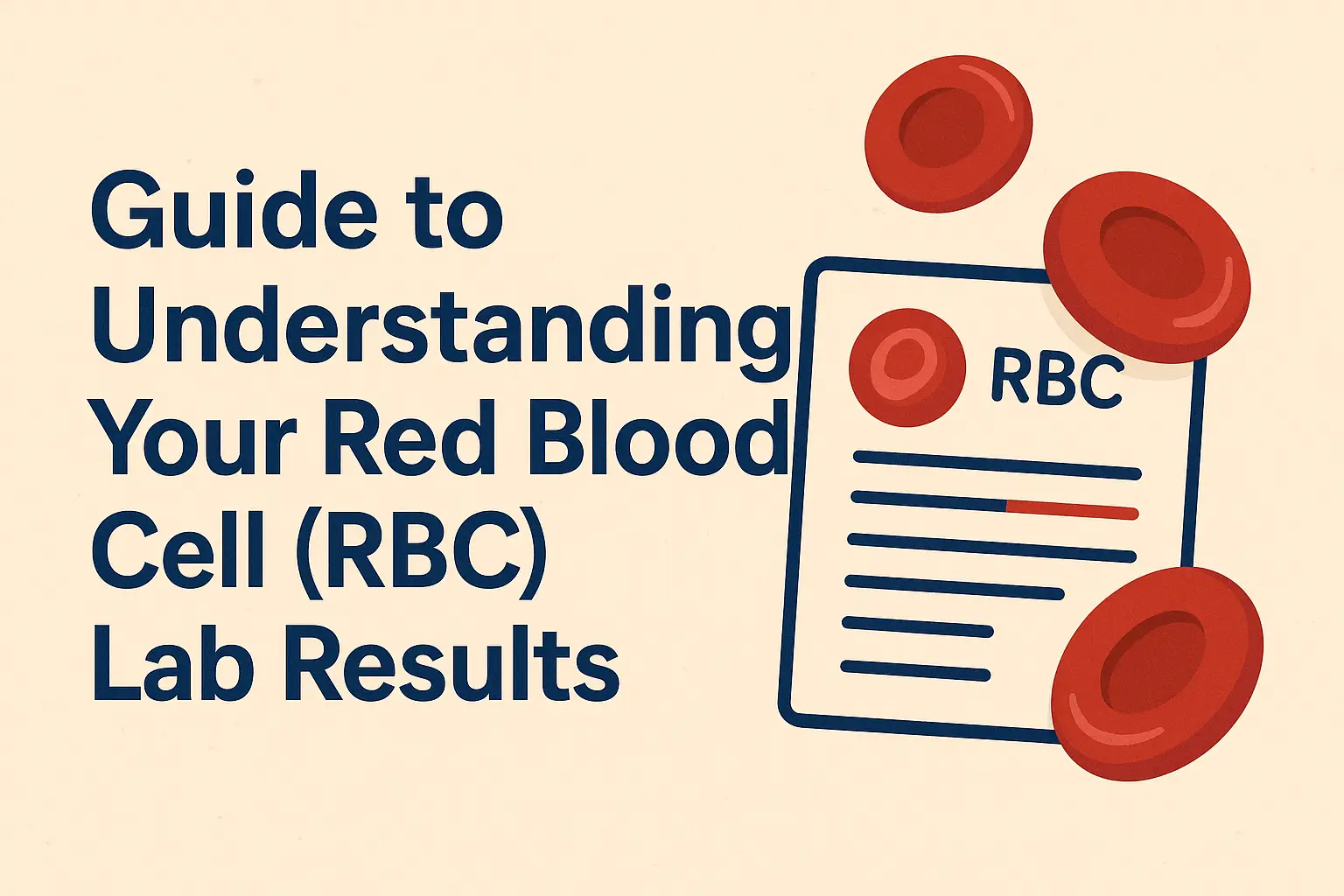You’ve just received your blood test results and noticed a term “Free T4”. This phrase, along with its accompanying value and reference range, may appear confusing at first. However, grasping its significance is vital for evaluating your thyroid health. In this article, we will guide you through a straightforward interpretation of this marker, helping you prepare for informed discussions with your healthcare provider and actively engage in managing your health.
What is Free T4?
Free T4, or FT4, is a hormone that the thyroid gland produces. Scientifically, it is known as free tetraiodothyronine, where “tetra” denotes the presence of four iodine atoms. This small gland, situated at the base of your neck, releases this hormone into the bloodstream. However, most of it binds to transport proteins, while the unbound portion is referred to as “free”. This free T4 is the active form that enters cells to perform essential functions within the body.
The Metabolic Role of Free T4
Free T4 plays a pivotal role in regulating the body’s metabolism and influences numerous critical physiological processes, such as:
- Regulating body temperature.
- Controlling heart rate.
- Maintaining body weight.
- Facilitating brain development.
- Enhancing cellular oxygen consumption.
Doctors often order free T4 tests to gain an accurate assessment of thyroid activity, as its measurement is more reliable than that of total T4; it isn’t affected by transport protein levels in the blood.
Why Monitor Free T4 Levels?
Free T4 levels do not exist in isolation but are part of a sophisticated regulatory system known as the hypothalamic-pituitary-thyroid axis. The brain constantly monitors levels of thyroid hormones. When free T4 levels drop, the pituitary gland, located in your brain, secretes more TSH (thyroid-stimulating hormone). The elevated TSH level then prompts the thyroid gland to increase hormone production, embodying a vital balancing mechanism.
The Importance of Accurate Diagnosis
Thyroid dysfunction is a prevalent health issue. Failing to detect an abnormality in free T4 levels can lead to significant long-term consequences. A persistently low value, indicative of hypothyroidism, may result in chronic fatigue, weight gain, mood disturbances, and an increased risk of cardiovascular diseases.
On the other hand, a consistently high value, which signals hyperthyroidism, may lead to complications like heart rhythm disorders, unintentional weight loss, or weakened bones (osteoporosis). Consequently, monitoring this marker is crucial, particularly during pregnancy when thyroid hormone requirements change.
How to Read and Understand Your Free T4 Tests?
Your laboratory report will contain several key elements, including your result, denoted in pmol/L or ng/dL, as well as the laboratory’s reference range. These reference values are derived from a population of healthy individuals and may slightly differ between laboratories. Typically, a standard range for free T4 sits between 10 and 25 pmol/L.
To interpret your results, simply compare your figure against this range. Should your result fall outside the typical range, remain cautious about jumping to conclusions. Only a doctor can properly diagnose your condition by evaluating your clinical status, symptoms, and other levels, like TSH.
What Conditions Are Linked to Abnormal Free T4 Levels?
Fluctuations in FT4 levels can indicate various medical issues. It’s beneficial to be aware of some common conditions associated with these variations.
Conditions Associated with Low Free T4
- Primary Hypothyroidism: This is the most frequent cause, where the thyroid gland fails to produce sufficient hormones. Symptoms may include fatigue, cold sensitivity, weight gain, and constipation. In some cases, depressive symptoms can be the initial indication, highlighting the association between hypothyroidism and depression. Diagnosis is confirmed through elevated TSH levels.
- Central Hypothyroidism: This rarer form arises from issues in the pituitary gland or hypothalamus. These glands do not secrete enough TSH to stimulate the thyroid, resulting in low Free T4 and TSH levels.
Conditions Associated with High Free T4
- Graves’ Disease: This autoimmune disorder is the leading cause of hyperthyroidism. The immune system produces antibodies that overly stimulate the thyroid, causing excessive hormone production. Symptoms may include nervousness, palpitations, weight loss, and tremors.
- Subacute Thyroiditis (De Quervain’s Thyroiditis): This temporary inflammation of the thyroid often occurs following a viral infection, resulting in a significant release of stored hormones, which can lead to a temporary hyperthyroid phase, typically succeeded by a hypothyroid phase.
- Toxic Adenoma: This benign thyroid nodule begins to function independently, producing excess hormones without regard for the body’s regulatory signals.
What Are the Practical Tips for Abnormal Results?
If your test result is abnormal, only a healthcare professional can advise on the appropriate next steps. Here are some general recommendations to support your treatment.
Adapting Your Diet and Lifestyle
Your diet can influence thyroid function. For those with hypothyroidism, a sufficient intake of iodine (found in seafood and dairy products) and selenium (found in Brazil nuts and fish) is crucial. In cases of hyperthyroidism, you might consider limiting stimulants, such as caffeine, which could exacerbate palpitations.
Additionally, ensuring good sleep, managing stress, and maintaining regular physical activity contribute positively to overall hormonal balance. It’s advisable to minimize exposure to endocrine disruptors found in some plastics and pesticides.
When to Consult a Specialist?
Consulting an endocrinologist is recommended if abnormalities are significant, if severe symptoms are present, during pregnancy planning, or in cases of complex diagnoses. For milder and isolated irregularities, regular monitoring with your primary care doctor may be adequate.
Frequently Asked Questions About Free T4
Do You Need to Fast for a Blood Test for TSH and T4?
No fasting is generally required for measuring thyroid hormones. However, hormone levels can fluctuate throughout the day. Therefore, having the blood test done in the morning is often recommended for standardized results and more accurate monitoring.
What is the Difference Between Free T4 and Total T4?
Total T4 measures all T4 hormone levels in the blood, encompassing both the portion bound to transport proteins (inactive) and the free portion (active). In contrast, Free T4 exclusively represents the active fraction, offering a more precise overview of the patient’s actual thyroid function.
Why is My TSH High While My Free T4 is Normal?
This situation reflects “subclinical” or “mild” hypothyroidism. The pituitary gland produces increased TSH to compensate for an emerging thyroid weakness. This stimulation allows the thyroid gland to maintain normal Free T4 levels. Continuous monitoring is essential to understand how this situation evolves.
Can Medications Influence the Free T4 Result?
Yes, several medications can alter Free T4 results. For instance, estrogens (found in birth control pills), certain anticonvulsants, and amiodarone (a heart medication) can impact the outcomes. Therefore, it’s crucial to inform your healthcare provider about all the medications you are taking.
Is There a Link Between Hyperthyroidism and Swollen Eyes?
Yes, swollen eyes, medically referred to as exophthalmos, are a notable symptom of Graves’ disease. This complication occurs due to inflammation in the tissues behind the eyes and requires specialized management, often in collaboration with an ophthalmologist, as discussed in our article on hyperthyroidism and swollen eyes.
Additional resources
- To deepen your understanding of this blood marker, click here.
- For further insights and to decode other markers, additional articles are available here.
Confused by your blood test results?
Gain immediate clarity. BloodSense provides an online interpretation of your blood test results in just minutes. Our secure platform translates complex medical data into an easily digestible report. Take charge of your health today by visiting bloodsense.ai for your personalized insights now.







